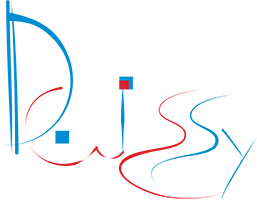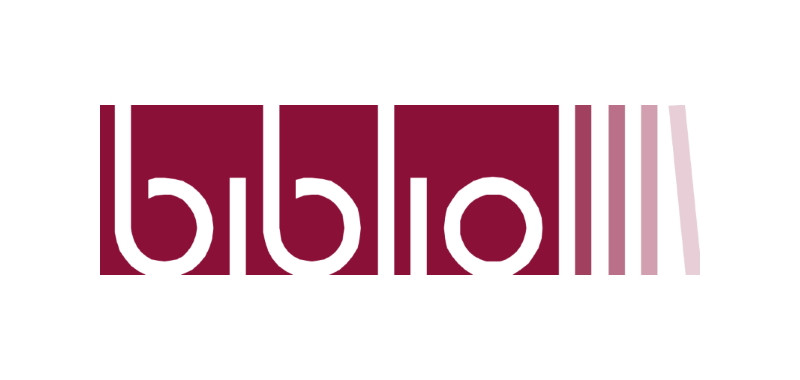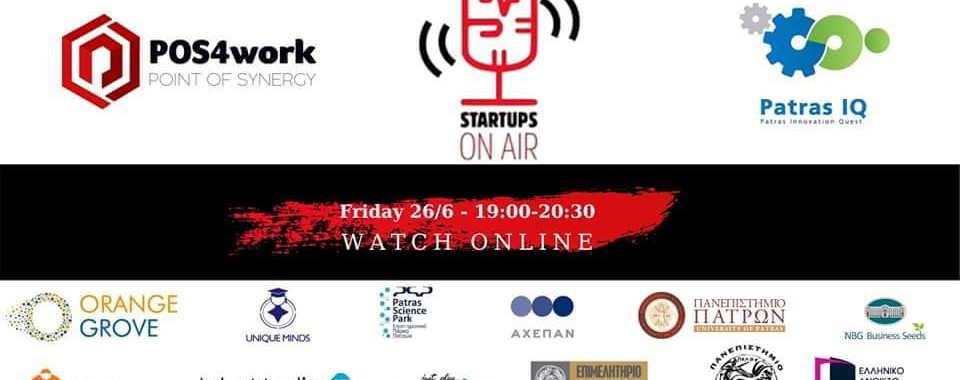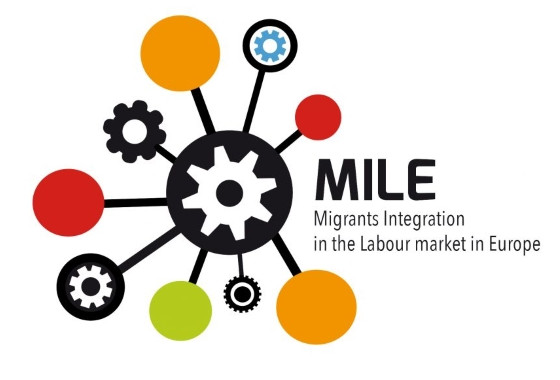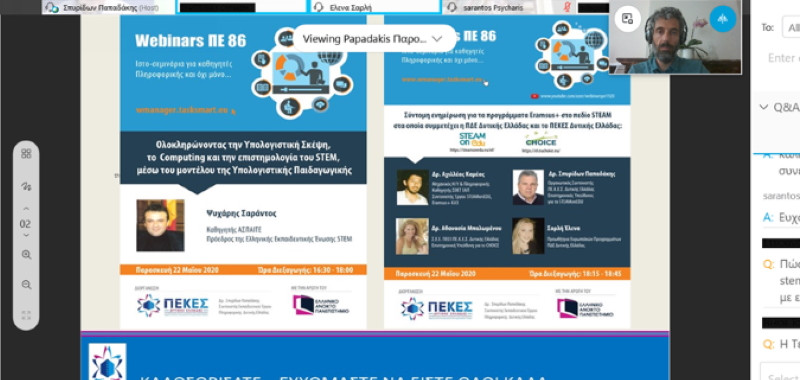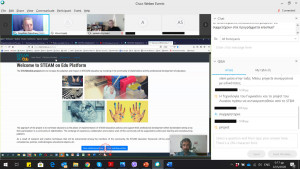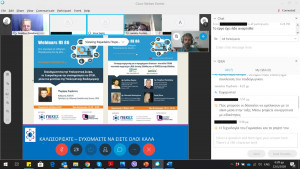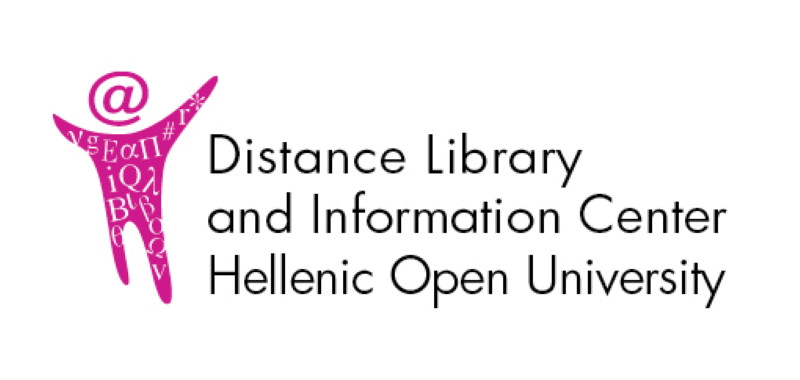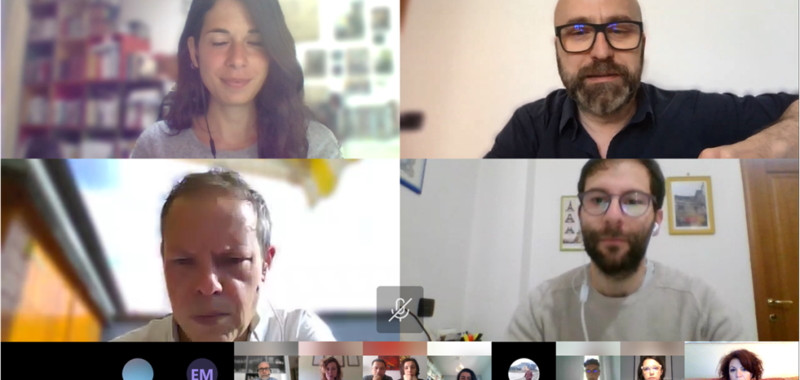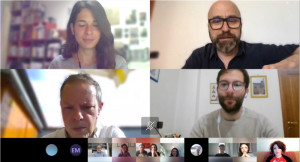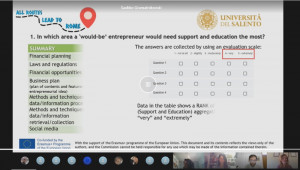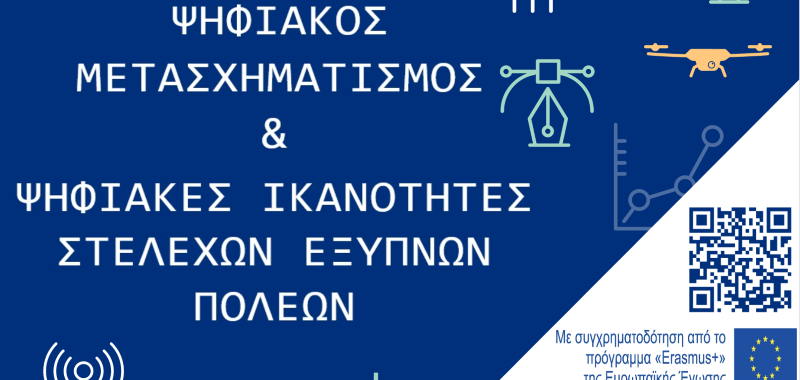DAISSy matches BIBLIO with PATRAS IQ, start-ups initiative and INTERREG EU program
On 26th June 2020, with the participation of civil society organizations, innovation hubs and academic institutions, a vivid EduTech session took place about the future of education and the impact of technology on it.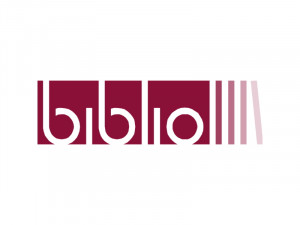
The so called “Startups on Air” event involved innovative ideas and startups, success and failure stories and is powered by #PatrasIQ (Innovation & Technology), the reference and interconnection point of the relevant ecosystem of the city of Patras. It is noteworthy, that the “PATRAS IQ” initiative embraces education, innovation, research and entrepreneurship on annual basis and at national level for more than seven years on the row. It has been strongly supported by Hellenic Open University (HOU) since the beginning and is being implemented in Patras, metropolitan centre of Western Greece, the city of the HOU Headquarters.
More precisely, the “Startups on Air” powered by “Patras IQ”, is supported by the Chamber of Commerce of Achaia, the University of Patras, the Hellenic Open University (HOU), the Patras Science Park, the National Bank of Greece, the POS4work Innovation and Entrepreneurship Node, the InterMediaKT (NGO), the Orange Grove and other agencies. This initiative is also sponsored by “Teleicce” EU project targeting the promotion of the most up-to-date tele-working and mass open -online training for improving the competitiveness of SMEs and the employment of professionals, funded by the “INTERREG V-A Greece-Italy” EU Program (www.Interregteleicce.eu).
Prof Achilles KAMEAS, Director of DAISSy Research Group of HOU, the Greek partner of BIBLIO, participated in the “Startups on Air” EduTech session – he presented related actions of DAISSy and focused on the BIBLIO project taking into account its innovative content and its firm interconnection with the impact of technology and digitalization on the libraries world! The online discussion was vivid and raised the interest of the speakers and participants from the sectors of ICT, economy and finance, education and research, innovation and entrepreneurship. It proved to be an excellent platform of matching BIBLIO with PATRAS IQ and INTERREG providing added value to the establishment of new bonds, the enrichment of stakeholders, the promotion of the project and its current results (https://www.facebook.com/events/282171829800089).
Here is how you can find more information on BIBLIO #DigitalBiblio and other activities of DAISSy:
Website https://www.biblio-project.eu/
Website : http://daissy.eap.gr/en, https://www.biblio-project.eu/
Facebook : @DAISSyResearchGroup, @digitalbiblio
Linkedin : https://www.linkedin.com/in/daissyresearchgroup/
Twitter : https://twitter.com/daissy_research
Instagram : @daissy_researchgroup
Email : info@daissy.eap.gr
Biblio project survey on competencies and training needs of the library professionals in Greece
Τhe first results of the Biblio project survey on competencies and training needs of the library professionals in Greece are out! 
- 80 professionals with an EQF-6 average educational background took part in the survey and 71% of them indicate 30 years of work experience on the average.
- 78% declared that their skills and knowledge need to be updated to complete their responsibilities.
- Among them, there are the elderly (37%), the students (29%) and the young people of less than 18 years of age (25%), who mostly wish for more digital activities!
More precisely, top priority theme turns out to be the social media management and the marketing of library activities whereas, the survey participants also express their 5 top preferences on training themes, i.e. exploration of technological changes; measurement and evaluation of library services; digitization; community assessment; library marketing and communications.
The survey was completed by DAISSy Research Group of Hellenic Open University supported by Distance Library and Information Center (D.L.I.C.) of the Hellenic Open University (HOU) between March 30 and May 11th 2020.
For more information on BIBLIO #DigitalBiblio, you can visit/contact us at:
Website https://www.biblio-project.eu/
Website : http://daissy.eap.gr/en, https://www.biblio-project.eu/
Facebook : @DAISSyResearchGroup, @digitalbiblio
Linkedin : https://www.linkedin.com/in/daissyresearchgroup/
Twitter : https://twitter.com/daissy_research
Instagram : @daissy_researchgroup
Email : info@daissy.eap.gr
#EAP #HOU #DAISSy #europeanprojects #BIBLIOsurvey #librarians #Greece
Συμμετοχή μελών της ΣΘΕΤ ΕΑΠ στην διαδικτυακή εκδήλωση Startups On Air : EduTech Session
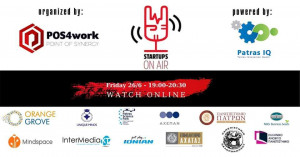 To Startups on Air | powered by PatrasIQ επιστρέφει online, με την υποστήριξη του Επιμελητηρίου Αχαΐας, του Ελληνικού Ανοικτού Πανεπιστημίου, του Επιστημονικού Πάρκου Πατρών, της Εθνικής Τράπεζας, του POS4work, της InterMediaKT και άλλων φορέων, ως σημείο συνάντησης των οργανισμών που υποστηρίζουν την επιχειρηματικότητα και την καινοτομία.
To Startups on Air | powered by PatrasIQ επιστρέφει online, με την υποστήριξη του Επιμελητηρίου Αχαΐας, του Ελληνικού Ανοικτού Πανεπιστημίου, του Επιστημονικού Πάρκου Πατρών, της Εθνικής Τράπεζας, του POS4work, της InterMediaKT και άλλων φορέων, ως σημείο συνάντησης των οργανισμών που υποστηρίζουν την επιχειρηματικότητα και την καινοτομία.
Σε διαδικτυακή συνάντηση το απόγευμα της Παρασκευής 26 Ιουνίου στις 19:00 θα παρουσιαστούν οι τελευταίες εξελίξεις στον χώρο της εκπαίδευσης. Νέες τεχνολογίες και πλατφόρμες, startups και οργανισμοί που εξειδικεύονται στο αντικείμενο συζητούν για το μέλλον της εκπαίδευσης μετά την πανδημία. Η εκδήλωση απευθύνεται κυρίως σε φοιτητές ή νέους απόφοιτους όπως και άτομα που τώρα ξεκινάνε την επιχειρηματική τους δραστηριότητα.
Στο πάνελ της συζήτησης συμμετέχουν από το ΕΑΠ ο Καθ. Ι. Καλαβρουζιώτης, Κοσμήτορας της σχολής Θετικών Επιστημών και Τεχνολογίας και ο Καθ. Α. Καμέας, Αν. Κοσμήτορας της σχολής Θετικών Επιστημών και Τεχνολογίας και επικεφαλής της ερευνητικής ομάδας DAISSy, μαζί με την κ. Διάνα Βουτυράκου, Founder της Unique Minds,τον κ. Παναγιώτη Αντωνόπουλο, Co-Founder της InterMediaKT, τον κ. Παναγιώτη Βαφείδη της Αχεπαν και τον κ. Ανδρέα Σαμμούτη, Academic Dean του City Unity College Δυτ. Ελλάδας.
Ο Καθ. Α. Καμέας θα παρουσιάσει τα έργα της ερευνητικής ομάδας DAISSy που αφορούν την ανάπτυξη ψηφιακών δεξιοτήτων και γενικότερα την επαγγελματική ανάπτυξη, για παράδειγμα:
- DCDS – It aims to establish a framework that will provide the low-skilled adult European population with the basic digital and transversal competences needed for employment, personal development, social inclusion and active citizenship.
- MuSA – Mu.SA addresses directly the shortage of digital and transferrable skills identified in the museum sector and supports the continuous professional development of museum professionals.
- DevOps – The project addresses the shortage of digital and transferrable skills in the municipalities’ smart cities sector and will support this sector’s employees in their professional development.
- BIBLIO – The project addresses the skills gap in the library/archives sector due to the digital transformation that is changing the role of libraries.
- Ind 4.0 – The aim of the project is to provide practical solution so as to help closing the gap between industry needs/expectations and educational system outputs, in relation Industry 4.0 in the target countries.
- Ecoslight – The project will identify the competences required as well as particular job role profiles related to them, and will create modular VET curricula (EQF 5) based on the learning outcomes approach and the adult learning principles.
- DELTA – The project aims at the design and development of an open course through which Students of Archaeology will be able to update their skills and develop new ones, in particular digital and 21st century skills.
- CDDC – The project aims to disseminate and scale-up at European level a good practice in the field of the valorization of digital cultural heritage as a means for inclusive education and for the promotion of European values among youngsters.
- Social Hackademy – The project aims to empower young people (age 16-29) from disadvantaged backgrounds by helping them acquire and develop digital skills to find digital solutions to social challenges and improve trainers’ capacity to foster digital skills of youth at risk of social and digital exclusion.
Η εκδήλωση στο Facebook βρίσκεται εδώ.
Η εγγραφή γίνεται από εδώ.
“XENIA: HΕ Inclusiveness Index” on the International Day Against Homophobia, Lesbian, Biphobia and Transphobia
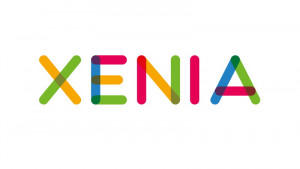 The International Day Against Homophobia, Lesbian, Biphobia and Transphobia (or IDAHOBIT, an acronym for International Day Against Homophobia, Biphobia and Transphobia) is an event recognized by the European Union and the United Nations that has been celebrated since 2004, on May 17 of each year.
The International Day Against Homophobia, Lesbian, Biphobia and Transphobia (or IDAHOBIT, an acronym for International Day Against Homophobia, Biphobia and Transphobia) is an event recognized by the European Union and the United Nations that has been celebrated since 2004, on May 17 of each year.
The objective of the day is to promote and coordinate international awareness and prevention events to combat the phenomenon of homophobia-bi-transphobia.
May 17 is a highly significant date for the LGBT+ community, because on May 17, 1990 the WHO (World Health Organization) removed homosexuality from the list of mental illnesses in the International Classification of Diseases. Thirty years after this day, the Xenia Erasmus+ project has carried out a social awareness campaign, asking individuals, associations and organizations that want to support the fight against homophobia-bi-transphobia to share a photo or video on their social channels with the hashtag #XENIAagainstHomoBiTransphobia.
It has been a great success for XENIA, reaching about 1.800 people on Facebook in a week, with more than ten countries participating. Vladimir Luxuria, the first transsexual woman to be a member of the parliament of a European state, also joined the social campaign promoted by the Xenia project. Her video has reached about 11.000 people.
XENIA is implemented by a Consortium of 7 Partners from 5 European countries: Italy, Ireland, Slovenia, Greece – DAISSy Research Group of the Hellenic Open University (HOU) – and Spain.
The project will develop an innovative and integrated tool that will support European Higher Education Institutions -HEIs- in evaluating the actual level of inclusiveness of their environment and in identifying any efforts that can be placed to best address the needs of sexual and gender marginalized groups and ensure the protection of their fundamental rights and academic opportunities.
For more information regarding XENIA project and/or more news of the DAISSy Research Group:
- Website : http://daissy.eap.gr
- Facebook : @DAISSyResearchGroup, @XENIA Erasmus+ Project #XENIA #socialinclusion #genderequality
- Linkedin : https://www.linkedin.com/in/daissyresearchgroup/
- Twitter : https://twitter.com/daissy_research
Ενίσχυση της ένταξης στην αγορά εργασίας προσφύγων και μεταναστών στο πλαίσιο του έργου MILE
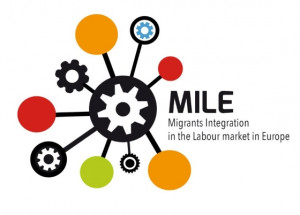 Με την ολοκλήρωση της έρευνας αποτύπωσης των αναγκών των εργοδοτών και έχοντας πλέον δημιουργήσει διαύλους τακτικής επικοινωνίας με ενδιαφερόμενα μέρη για την εργασιακή ενσωμάτωση των μεταναστών και προσφύγων, η Ερευνητική Ομάδα DAISSy του Ελληνικού Ανοικτού Πανεπιστημίου (ΕΑΠ) σε συνεργασία με την Ολυμπιακή Εκπαιδευτική προχωρούν στο επόμενο στάδιο του έργου MILE που αφορά στην παροχή ενός προσαρμοσμένου προγράμματος κατάρτισης και υποστήριξης εργασίας για μετανάστες, πρόσφυγες και αιτούντες άσυλο. Οι πρώτες ομάδες από την Ηλεία συμμετέχουν ήδη στη διαδικασία αξιολόγησης δεξιοτήτων (συμπεριλαμβανομένου του εργαλείου προφίλ δεξιοτήτων της ΕΕ για υπηκόους τρίτων χωρών). Θα ακολουθήσει η συμβουλευτική υποστήριξή τους για την ανάπτυξη μαλακών δεξιοτήτων όπως:
Με την ολοκλήρωση της έρευνας αποτύπωσης των αναγκών των εργοδοτών και έχοντας πλέον δημιουργήσει διαύλους τακτικής επικοινωνίας με ενδιαφερόμενα μέρη για την εργασιακή ενσωμάτωση των μεταναστών και προσφύγων, η Ερευνητική Ομάδα DAISSy του Ελληνικού Ανοικτού Πανεπιστημίου (ΕΑΠ) σε συνεργασία με την Ολυμπιακή Εκπαιδευτική προχωρούν στο επόμενο στάδιο του έργου MILE που αφορά στην παροχή ενός προσαρμοσμένου προγράμματος κατάρτισης και υποστήριξης εργασίας για μετανάστες, πρόσφυγες και αιτούντες άσυλο. Οι πρώτες ομάδες από την Ηλεία συμμετέχουν ήδη στη διαδικασία αξιολόγησης δεξιοτήτων (συμπεριλαμβανομένου του εργαλείου προφίλ δεξιοτήτων της ΕΕ για υπηκόους τρίτων χωρών). Θα ακολουθήσει η συμβουλευτική υποστήριξή τους για την ανάπτυξη μαλακών δεξιοτήτων όπως:- επικοινωνία
- ομαδική εργασίαπληροφορική
- καταπολέμηση των διακρίσεων
- τοπική αγορά εργασίας και νομοθεσία για την απασχόληση στην Ελλάδα, κλπ.
Στόχος των παρεμβάσεων είναι να προσφερθούν υπηρεσίες καθοδήγησης και επιμόρφωσης σε συνολικά 120 μετανάστες και πρόσφυγες ώστε να καταστούν απασχολήσιμοι. Επιπρόσθετα προβλέπεται η επιδότηση της απασχόλησης 30 συνολικά μεταναστών και προσφύγων για ένα μήνα.
Για περισσότερες πληροφορίες, μπορείτε να επικοινωνήσετε μαζί μας συμπληρώνοντας την φόρμα επικοινωνίας εδώ, ή μέσω των παρακάτω: Για τη DAISSy: Τηλέφωνο: 6987123345, E-mail: info@daissy.eap.gr, Αθήνα, Γραβιάς 4-6, 10678. Για την Ολυμπιακή Εκπαιδευτική: Τηλέφωνα: 2621040200, 40219, 40217 Fax: 2621040210, E-mail: olykek@olympiakokek.gr, Πύργος, Ρήγα Φεραίου 113 (πάροδος Forum).
Το έργο MILE στοχεύει στην ανάπτυξη, εφαρμογή και ευρύτερη αξιοποίηση ενός αποτελεσματικού μοντέλου για την ένταξη μεταναστών και προσφύγων στην αγορά εργασίας, με βάση τη συνεργασία πολλών ενδιαφερομένων μερών. Οι δράσεις του MILE αναπτύσσονται με γνώμονα τόσο τις ανάγκες των εργοδοτών όσο και των μεταναστών. Δείτε περισσότερα στο ενημερωτικό φυλλάδιο.
Presentation of the STEAMonEdu project during webinar on the epistemology of STEM
Project STEAMonEdu was presented by Prof. Achilles Kameas and Dr. Spyridon Papadakis during the scientific webinar “Integrating Computational Thinking-Computing and the Epistemology of STEM through the model of Computational Pedagogy”, which was organized by the Regional Educational Center of the Regional Directorate of Primary and Secondary Education of Western Greece. The event took place on 22 May 2020.
More than 450 participants, mostly educators, joined online, watched the presentations and participated in fruitful discussions regarding STEAM education.
Achilles Kameas, the scientific coordinator of the STEAMonEdu project, presented the aims and objectives of the project, focusing on the approach that puts educators, both from formal and non-formal education, at the center. He presented the expected project outcomes, which include online communities, competence-based tools, and tools for policy makers. Subsequently, Spyridon Papadakis presented the STEAMonEdu online community platform and provided the participants with all the necessary information on how educators, researchers or other stakeholders may participate in the STEAMonEdu community, as well as the benefits and opportunities of being an active member of it. Though this online community, members are supported to collaboratively design, create and share educational scenarios, while STEAM education best practices and policies are collected and used to inspire and stimulate innovation.
More than 450 participants, mostly educators, joined online, watched the presentations and participated in fruitful discussions regarding STEAM education.
Achilles Kameas, the scientific coordinator of the STEAMonEdu project, presented the aims and objectives of the project, focusing on the approach that puts educators, both from formal and non-formal education, at the center. He presented the expected project outcomes, which include online communities, competence-based tools, and tools for policy makers. Subsequently, Spyridon Papadakis presented the STEAMonEdu online community platform and provided the participants with all the necessary information on how educators, researchers or other stakeholders may participate in the STEAMonEdu community, as well as the benefits and opportunities of being an active member of it. Though this online community, members are supported to collaboratively design, create and share educational scenarios, while STEAM education best practices and policies are collected and used to inspire and stimulate innovation.
Distance Library and Information Center (DLIC) of HOU: a trustful actor of the BIBLIO project implementation in Greece
 DAISSy Research Group of the Hellenic Open University (HOU) (#DAISSy#HOU), maintains direct and firm cooperation with the Distance Library and Information Center (DLIC) of HOU for the implementation of BIBLIO EU project (#digitalskills,@DigitalBiblio), in Greece. Supporting the educational and research studies of the academic community of HOU through dedicated sources and services, is a continuous effort of the DLIC . Aiming to train HOU students in developing digital skills on searching and retrieving information properly, the DLIC incorporates a wide range of related sources and services.
DAISSy Research Group of the Hellenic Open University (HOU) (#DAISSy#HOU), maintains direct and firm cooperation with the Distance Library and Information Center (DLIC) of HOU for the implementation of BIBLIO EU project (#digitalskills,@DigitalBiblio), in Greece. Supporting the educational and research studies of the academic community of HOU through dedicated sources and services, is a continuous effort of the DLIC . Aiming to train HOU students in developing digital skills on searching and retrieving information properly, the DLIC incorporates a wide range of related sources and services.
DLIC’s collection of printed materials includes more than 43,000 titles of books and magazines and covers all cognitive subjects of HOU, whereas there is a huge number of valid scientific electronic sources such as Databases, Electronic Books, Electronic Magazines, Thematic Gates, Sectoral Studies, Depository and Heal-Link Sources. These could be easily accessed by students through DLIC website by using their personal codes. Find out more about DLIC of HOU by visiting http://lib.eap.gr/en .
Here is how you can find out more about BIBLIO project as well as about DAISSy and its activities:
- Website : http://daissy.eap.gr/en
- Facebook: @DAISSyResearchGroup @DigitalBiblio
- Linkedin : https://www.linkedin.com/in/daissyresearchgroup/
- Twitter : https://twitter.com/daissy_research, @digital_biblio
- Instagram: @daissy_researchgroup
- Email: info@daissy.eap.gr
Οι βιβλιοθήκες σχεδιάζουν την επανα-λειτουργία τους με ασφαλή τρόπο και το έργο BIBLIO συμβάλει σε αυτό
Στην τρέχουσα χρονική περίοδο και σε παγκόσμια κλίμακα, οι βιβλιοθήκες (#Libraries) σχεδιάζουν την επανα-λειτουργία τους με ασφαλή τρόπο, διατηρώντας συνεχή συνεργασία με τις ενώσεις τους και τα δίκτυά τους.
H Eρευνητική Ομάδα DAISSy του ΕΑΠ μετέχει με περηφάνια σε αυτή την προσπάθεια, στο πλαίσιο συνεργασίας με τη “Διεθνή Ομοσπονδία Ενώσεων και Ινστιτούτων Βιβλιοθηκών” (IFLA-International Federation of Library Associations and Institutions) κι ειδικότερα με το Τμήμα της για τη “Διαχείριση των Ενώσεων Βιβλιοθηκών” (IFLA Section – Management of Library Associations) αναφορικά με τη συλλογή και προώθηση πληροφοριών μεταξύ των χωρών, χωρίς σύνορα!
Μπορείτε να δείτε “εδώ” περισσότερες πληροφορίες.
Η πρωτοβουλία αυτή εντάσσεται στην υλοποίηση του Ευρωπαϊκού έργου BIBLIO #DigitalBiblio, όπου η ερευνητική ομάδα DAISSy του ΕΑΠ (#DAISSy #HOU) αποτελεί φορέα-εταίρο στην Ελλάδα.
Για περισσότερες πληροφορίες σχετικά με το έργο BIBLIO κι άλλες δράσεις της ερευνητικής ομάδας DAISSy:
- Website: http://daissy.eap.gr/en
- Facebook: @DAISSyResearchGroup @DigitalBiblio
- Linkedin: https://www.linkedin.com/in/daissyresearchgroup/
- Twitter: https://twitter.com/daissy_research, @digital_biblio
- Instagram: @daissy_researchgroup
- Email: info@daissy.eap.gr
DAISSy Research Group of Hellenic Open University participated in the All Routes Lead to Rome Online Meeting
On 7th May 2020, DAISSy Research Group took part in the second project meeting of the All Routes Lead to Rome project. Due to the COVID-19 pandemic, the meeting, originally planned in Brussels, has been realised in online mode on the basis of an agenda developed and shared jointly by all partners.
At the meeting, the partners discussed about the project progress and deadlines extensions due to the COVID-19. In particular, they focused on the state of development of the Open Educational Resources platform that is already online at https://romanroutes.eu/index.php. Furthermore, the partners presented the mapping on the entrepreneurial potential of the Roman Routes developed under the Intellectual Output 2.
In the coming months the work will be focused on the development of training contents to be loaded on the platform in order to offer non-formal education courses on entrepreneurship related to tourism issues and the potential of Roman Routes also aimed at disadvantaged people.
DAISSy Research Group contributes in all phases of the project, such as field research and mapping of the Roman routes in Greece, creation of open educational content for the Open Educational Platform, piloting, dissemination and exploitation.
All Routes Lead to Rome is a project co-funded by the Erasmus+ Programme of the European Commission which involves a Consortium of 8 Partners from 5 countries (Belgium, Italy, Greece, North Macedonia and Spain).
The project aims to enable university students to identify and pursue the best strategies to maximize the economic return of the ancient routes network, develop basic and transversal skills such as self-reliance, leadership and ability to work in groups, problem solving, mastering of digital skills and multilingualism.
For further information on DAISSy Research Group:
- Web: http://daissy.eap.gr
- Facebook: @DAISSyResearchGroup
- Twitter: @daissy_research
Online Workshop – Ψηφιακός Μετασχηματισμός & Ψηφιακές Ικανότητες Στελεχών Έξυπνων Πόλεων
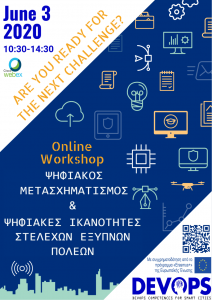 Με ιδιαίτερη χαρά σας προσκαλούμε στο online workshop με τίτλο
Με ιδιαίτερη χαρά σας προσκαλούμε στο online workshop με τίτλο
“ΨΗΦΙΑΚΟΣ ΜΕΤΑΣΧΗΜΑΤΙΣΜΟΣ ΚΑΙ ΨΗΦΙΑΚΕΣ ΙΚΑΝΟΤΗΤΕΣ ΣΤΕΛΕΧΩΝ ΕΞΥΠΝΩΝ ΠΟΛΕΩΝ”
η οποία θα πραγματοποιηθεί την Τετάρτη, 3 Ιουνίου 2020 και ώρες 10:30-14:30
Το workshop, η συμμετοχή στο οποίο είναι δωρεάν, πραγματοποιείται στα πλαίσια του ευρωπαϊκού έργου “DevOps Competences for SmartCities” (http://devops.uth.gr) του Erasmus+/Sector Skills Alliance, στοχεύει να τονίσει τόσο την ανάγκη ψηφιακού μετασχηματισμού των πόλεων σε Έξυπνες Πόλεις, όσο και αυτή της εκπαίδευσης και επιμόρφωσης των στελεχών των πόλεων αυτών στις νέες, απαραίτητες τεχνολογίες και γνώσεις για αυτό το σκοπό.
Περισσότερες πληροφορίες για την εκδήλωση και τον τρόπο συμμετοχής σε αυτήν: http://devops.uth.gr/dev/workshop
